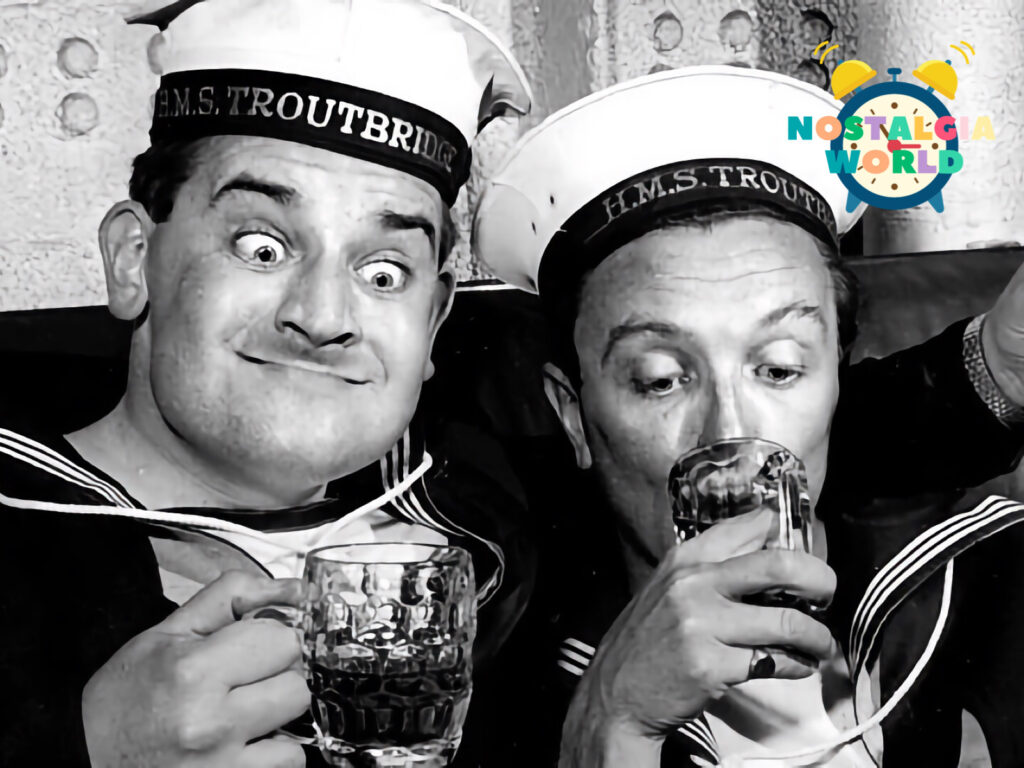1 9 5 9 – 1 9 7 7 (UK)
This long-running BBC radio sitcom was set aboard a (fictional) Royal Navy frigate named HMS Troutbridge.
Premiering on 29 March 1959, the 30-minute episodes were initially transmitted on the BBC Light Programme and subsequently on Radio 2.
For most of its 15-series run, the show starred Sub-Lieutenant “left hand down a bit” Phillips (Leslie Phillips), scheming Chief Petty Officer Pertwee (Jon Pertwee) and the eternally bemused “Number One”, Lieutenant Murray (Stephen Murray). The first series also starred Dennis Price.
The crew of the Troutbridge included Able Seaman Jeremiah “Fatso” Johnson (Ronnie Barker), Able Seaman (later Leading Seaman) “Taffy” Goldstein (Tenniel Evans), and Able Seaman Ginger (Michael Bates). The ship came under the command of Commander (later Captain) Henry “Thunderguts” Povey (Richard Caldicot).
Stories featured a string of eccentric characters (often played by Barker, Pertwee or Bates). Heather Chasen appeared frequently as characters including WREN Chasen, Mrs Ramona Povey, Lady Amelia Toddhunter-Brown, Rita Ffont-Bittocks (who eventually married Lieutenant Murray), and Second Officer McCluty.
Announcers included Robin Boyle, Michael De Morgan, Ronald Fletcher, Barri Haynes, David Dunhill, Don Durbridge, Michael Meech, Tim Gudgin, Colin Berry, Roy Williamson, Colin Doran and Jimmy Kingsbury.
Episodes were self-contained, although there was continuity throughout the series, with occasional references to previous episodes.The show’s theme tune, Trade Wind Hornpipe, was written and performed by Tommy Reilly.
A film version – also called The Navy Lark – was released in 1959. Directed by Gordon Parry, it starred Cecil Parker, Ronald Shiner, Elvi Hale, Leslie Phillips and Nicholas Phipps. The film did not do well, largely because of the absence of Jon Pertwee and Stephen Murray.
A short-lived BBC radio programme called The TV Lark transplanted the characters to a television station in February and March 1963. The 10 episodes proved unpopular and The Navy Lark returned in April 1963.
Stephen Murray died in London on 31 March 1983, aged 70.





